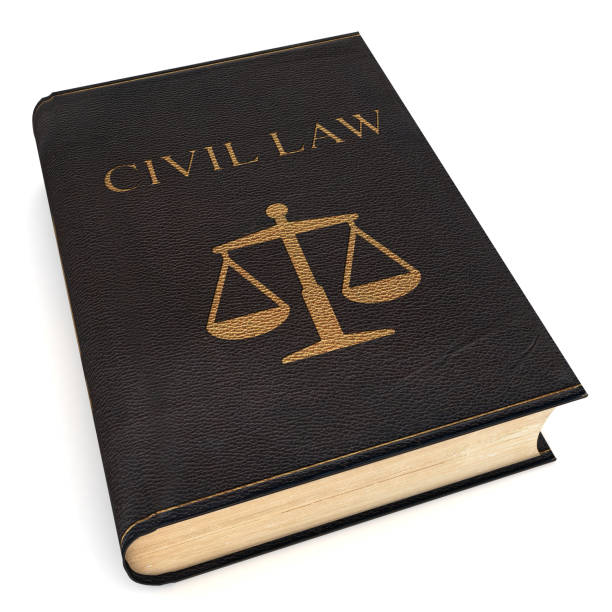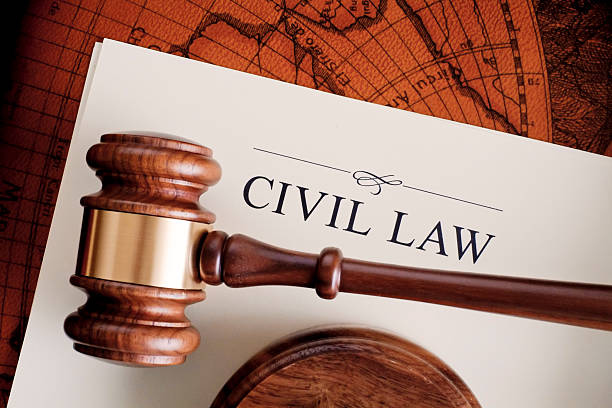The burden of proof in civil cases plays a vital role in the Australian judicial system. It serves as the compass guiding judges in determining the party responsible for proving their case and, consequently, the party deserving of a sound and prudent judgment.
Simply, the burden of proof refers to the obligation of a party to prove their assertions or allegations. The party with the burden of proof must:
- Present evidence; and
- Convince the court or tribunal that their version of events is more likely to be true
In civil cases, the burden of proof typically falls on the plaintiff, who seeks remedy or compensation. However, it is important to note that the burden of proof can shift between parties during different case stages.
In this article, we will outline the ins and outs of the burden of proof in civil cases in Australia. From the standard of proof to the challenges faced by plaintiffs, we will discuss this crucial aspect of the legal process.
Burden of Proof in Civil Cases
The burden of proof in a civil case differs from that in a criminal case. The balance of probabilities standard prevails. This means that a party must present evidence that is more probable than not. Whereas, the criminal standard – “beyond a reasonable doubt“– necessitates a higher level of certainty. Beyond a reasonable doubt means that the prosecution must persuade the jury that the evidence presented at trial leaves no other possible plausible explanation.
However, the balance of probabilities standard allows judges to:
- Weigh the evidence; and
- Decide which party has presented the more convincing case.
This standard ensures fairness and prevents the excessive burden that a higher standard may impose in civil matters.

The Plaintiff’s Burden of Proof
The plaintiff bears the burden of proof in civil cases in Australia. The plaintiff is the party initiating the lawsuit and seeks to establish their case against the defendant. To successfully meet the burden of proof, the plaintiff must present evidence that convinces the judge.
They must base this on the balance of probabilities, that their version of events is more likely true than not. The evidence must substantiate each element of their claim, which can vary depending on the nature of the case.
Let’s use a personal injury case as an example. The plaintiff in this case must prove that the defendant owed them a duty of care and breached that duty and may escape criminal liability. As a result, the breach caused them harm or injury. Each element must be established with sufficient evidence such as:
- Medical records
- Witness testimony; or
- Expert opinions
It is the plaintiff’s responsibility to convince the court with such evidence that their claim is more probable than not.
Shifting the Burden of Proof in Civil Cases
While the burden of proof typically rests with the plaintiff, there are situations where it can shift to the defendant. One example is when the defendant raises a counterclaim against the plaintiff. In such cases, the defendant becomes a claimant, and the burden of proof shifts to them to establish their counterclaim.
This ensures fairness and allows both parties to present their cases and provide evidence to support their positions. Moreover, certain statutory provisions or common law principles may also lead to the burden of proof shifting. Let’s use another example that involves discrimination cases.
What happens once the plaintiff establishes a prima facie case (cases that are accepted as true at first impression) of discrimination? If this is the case, the burden of proof shifts to the defendant to prove their actions were not discriminatory. These shifts in the burden of proof aim to balance the scales and promote justice.
Evidence and the Burden of Proof
Evidence plays a pivotal role in the burden of proof for civil cases. The evidence presented must be credible, reliable, and relevant to the issues at hand. Parties rely on various types to adduce sufficient evidence which include:
- Documents
- Photographs
- Expert opinions ; and
- Witness testimony (For instance, the witness stated that a person committed an act involving grave moral delinquency)
It is crucial to note that the quality of evidence can significantly impact the judge’s decision. This is because the judge evaluates the evidence presented by both parties. They may also scrutinise its credibility and determine its weight.
Moreover, it is the judge’s responsibility to weigh the evidence and decide which party has met the burden of proof. Therefore, parties must present their evidence in a clear and persuasive manner to increase their chances of success.
Challenges and Strategies
Meeting the burden of proof in civil cases is challenging for plaintiffs. They must navigate various obstacles to convince the court of the merits of their case. One common challenge is the need for more direct evidence, particularly in cases involving complex or historical events.
Plaintiffs may rely on circumstantial evidence, expert testimony, or inferences to establish their case. To overcome these challenges, plaintiffs employ strategies such as thorough investigation, diligent collection of evidence, and expert opinions.
Expert witnesses can provide specialised knowledge and assist in explaining complex matters to the court. A well-prepared and persuasive case can tip the scales in favour of the plaintiff, making it more probable than not that their version of events is accurate.
Judicial Evaluation of Evidence
Judges play a crucial role in evaluating the evidence presented in civil cases. They assess the credibility of witnesses, consider the reliability of documents, and weigh the persuasiveness of expert opinions. Judges apply their expertise and impartiality to determine which party has met the burden of proof.
During this evaluation, judges must remain unbiased, basing their decision solely on the evidence presented. They are not bound by any strict rules of evidence but exercise their discretion to admit relevant and reliable evidence. Judges consider the probative value of each piece of evidential burden and make their determinations based on the balance of probabilities.
Consequences of Failing to Meet the Burden of Proof
Failing to meet the burden of proof in civil cases can have significant consequences for the party bearing that burden. If the plaintiff fails to establish their case, the court may rule in favour of the defendant. Consequently, the plaintiff may not receive the desired judgement, damages, or other remedies sought.
Additionally, the party failing to meet the burden of proof may be responsible for paying the opposing party’s costs. This outcome underscores the importance of presenting a strong case with sufficient evidence to support the claims made.

Importance of Seeking Legal Advice and Civil Litigation
The burden rests on the party initiating the action, requiring them to prove their case on the balance of probabilities. While the burden primarily applies to civil cases, its relevance extends to criminal law matters, where different standards of proof apply.
That is why it’s important to seek legal advice from an expert law firm like JB Solicitors. We can aid in civil and criminal offence matters should you face legal action in a court proceeding or criminal trials. Our lawyers can also make out-of-court negotiations should disputed parties opt for less costly resolutions.
Contact a Sydney criminal lawyer today if you need help with the legal burden of proof in civil cases and criminal cases.
